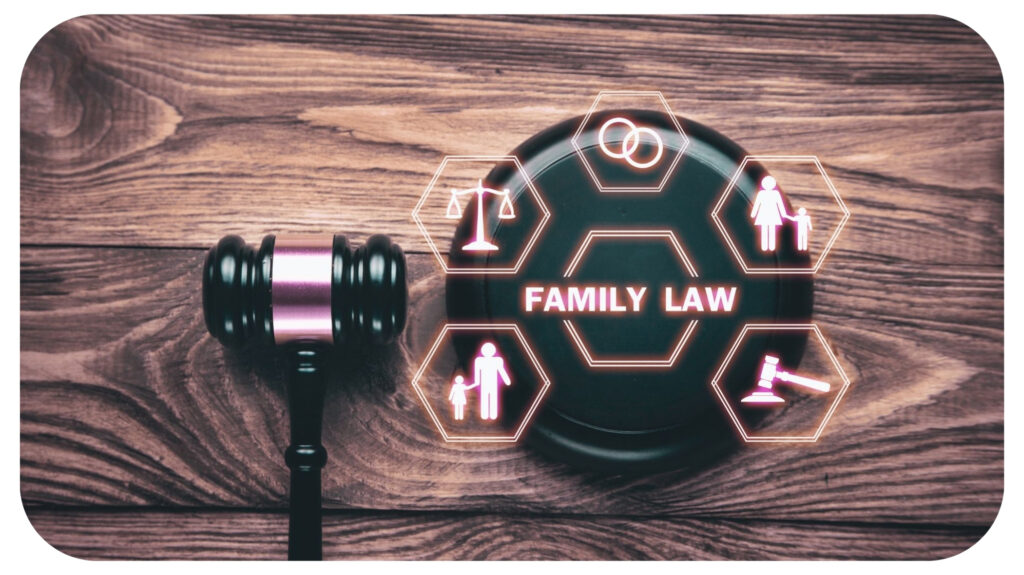The Dadvocates Founder Samera Habib on Achieving the Best Outcomes in Family Law

Navigating the intricate and delicate realm of family law requires more than just a legal understanding. It demands a blend of empathy, strategy, and skillful negotiation.
Each case in family law is layered with complex emotional and psychological dimensions, making it distinctively challenging. The stakes are invariably high, as decisions made in these cases profoundly impact the lives and futures of the individuals involved. This is where strategic planning and adept negotiation become crucial, steering cases towards outcomes that are not only legally sound but also emotionally considerate.
At The Dadvocates P.C., Samera Habib, an experienced family law attorney, explores the intricacies of family law. This dedicated team specializes in developing effective courtroom strategies, mastering negotiation techniques for settlements, and safeguarding their clients’ interests and well-being. As the founder of The Dadvocates and a passionate advocate for fathers seeking greater involvement in their children’s lives, Habib’s mission is to provide legal professionals with a comprehensive roadmap to navigate the complex landscape of family law.
The Dadvocates are committed to achieving the best possible outcomes in this ever-evolving field, making a meaningful difference in the lives of their clients and their families.
Contents
ToggleUnderstanding Family Law Dynamics
At its core, family law deals with the most intimate aspects of human relationships, including the formation and dissolution of marriages, the custody of children, and the division of shared assets and lives. This unique blend of emotional, psychological, and legal aspects sets family law apart from other legal fields.
“The emotional stakes in family law are exceptionally high,” says The Dadvocates’ founder. “Clients are not just fighting for assets or rights but are often grappling with a sense of personal loss, betrayal, or fear for the future.”
These emotions can deeply influence their decisions and behaviors, making the role of a family lawyer as much about managing these emotions as it is about managing the legal aspects. Lawyers must navigate these emotional waters with sensitivity, understanding that each decision or legal step can have profound personal implications for their clients.
Psychologically, family law cases can be taxing for all parties involved. The stress of litigation or the negotiation process can exacerbate underlying mental health issues or emotional vulnerabilities. Recognizing and addressing these psychological aspects is crucial. Lawyers need to be attuned to the mental state of their clients, offering support or referring them to appropriate mental health professionals when necessary.
Family Law Cases in the Courtroom
Legally, family law is marked by its complexity. Laws vary significantly from jurisdiction to jurisdiction, and even within jurisdictions, judges may interpret laws differently. Lawyers need to be adept at understanding and maneuvering within this legal landscape. This involves not only a deep knowledge of the law but also an understanding of the local legal culture and how different judges operate.
“In both courtroom proceedings and settlement negotiations, these emotional and psychological dynamics play a pivotal role,” says Samera Habib. “They can influence the course of negotiations, the willingness of parties to compromise, and even the final outcomes. As such, adopting a client-centered approach is vital.”
This approach prioritizes the client’s overall well-being, not just their legal interests. It involves active listening, empathy, and a commitment to understanding and achieving the client’s broader life goals, not just winning the legal battle. The dynamics of family law demand a holistic approach where legal acumen is paired with emotional intelligence and psychological insight. The best family lawyers recognize that they are dealing with people, not just cases, and tailor their strategies accordingly.

Thorough Preparation and Understanding of Legal Precedents
The bedrock of effective courtroom representation is thorough preparation. This involves a comprehensive understanding of the facts of the case that are learned by interacting with the client and their case on a day-to-day basis and a deep dive into relevant legal precedents, staying up to date with the law as it develops. Family law is continually evolving, and staying abreast of recent rulings, legislative concerns, and legal and legislative trends is crucial. Lawyers must meticulously research and prepare their cases, anticipating potential counterarguments and preparing evidence and testimonies that align with the relevant legal standards. A well-prepared case, backed by relevant precedents, provides a strong foundation for effective argumentation in court.
“Once in the courtroom, the manner in which a case is presented can be as important as the substance of the case itself,” says The Dadvocates founder.
Persuasive argumentation is key. This involves not only logical and coherent presentation of facts and legal principles but also the ability to connect with the emotional and ethical dimensions of the case. Presentation skills, including clear communication, effective body language, and the ability to remain calm under pressure, can significantly impact a judge’s perception and, consequently, the case outcome. A lawyer’s skill in weaving together narrative, legal principles, and emotional appeals can make a substantial difference.
Adapting Strategies to Different Judges and Opposing Counsel
Each judge and opposing counsel brings their own unique style and preferences to the courtroom. An effective family law attorney must be adept at reading the courtroom and adjusting strategies accordingly. This means being able to quickly assess a judge’s leanings and biases, adapting arguments to resonate with their particular perspective. Similarly, understanding the tactics and approach of opposing counsel allows for more effective counter-strategies. This adaptive approach requires flexibility, quick thinking, and a deep understanding of human psychology and legal theory.
Effective courtroom strategies in family law hinge on the interplay of preparation, persuasive argumentation, and the ability to tailor approaches to the specific dynamics of the courtroom. Mastery of these elements enables lawyers to advocate effectively for their clients, navigating the complexities of family law with skill and precision.
The increasing complexity of family structures, cross-border relationships, and digital assets will bring new challenges and opportunities. Lawyers in this field must be prepared to adapt, embracing continuous learning, and staying ahead of emerging trends. Due to court dockets getting more and more congested and overrun with parenting disputes, the future will likely see a greater emphasis on alternative dispute resolution methods, with a focus on mediation and collaborative law, and private arbitration, as parties seek faster, more amicable and less adversarial ways to resolve family disputes. Ultimately, the ability to combine legal expertise with emotional intelligence and adaptability will remain paramount in achieving the best outcomes in family law, ensuring that the field continues to serve the changing needs of families and society without delay.
In the trying realm of family law, Samera Habib, founder of The Dadvocates, excels in blending legal acumen with empathy, offering strategies that address both the legal and emotional needs of her clients. Her work emphasizes the importance of understanding the emotional and psychological dimensions that uniquely define family law cases. Habib’s expertise in negotiation and courtroom strategies, coupled with her advocacy for fathers’ rights, positions The Dadvocates as a pivotal resource in family law.
As family structures and societal norms evolve, introducing new challenges like digital assets and cross-border relationships, The Dadvocates’ approach adapts, focusing on both traditional litigation and alternative dispute resolutions. This adaptability ensures that Habib’s vision and strategies continue to guide legal professionals toward achieving balanced outcomes in the dynamic landscape of family law.
The Dadvocates’ commitment to addressing the unique challenges faced by men and fathers in the legal system, advocating for fathers’ rights, equal custody, and fair treatment, serves as a testament to their mission of recognizing the vital role of fathers in children’s lives while challenging biases and stereotypes within family law. With a holistic approach that combines legal expertise, emotional intelligence, and adaptability, The Dadvocates offer invaluable guidance to legal professionals, ensuring the best possible outcomes in the ever-evolving landscape of family law. As family dynamics evolve, The Dadvocates continue to adapt, embracing both traditional litigation and alternative dispute resolutions, to meet the changing needs of families and society.
Recommended For You
The Most Common Reasons to Hire a Toronto Criminal Lawyer
Most Inside
Most Inside offers high-quality recommendations and valuable updates to enhance all aspects of your life, providing premium guidance and enriching experiences.




